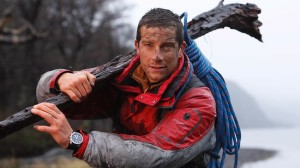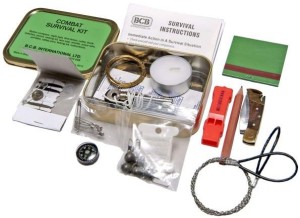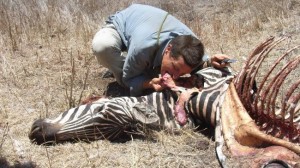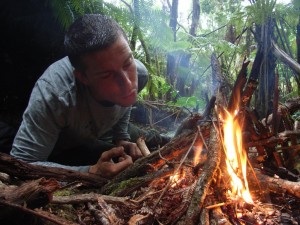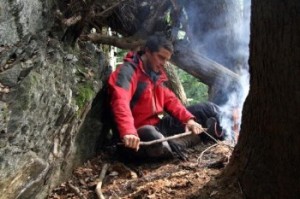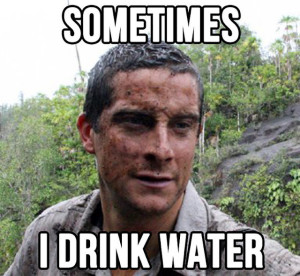Over the years I have become a keen survivalist. Not the crazy people with guns coming out their wazoo that you see on American YouTube videos, More like a less fit Bear Grylls. I can start fire by rubbing sticks together, get water to drink and build a place to live out of the materials around me. This means I am fairly self sufficient in the bush, A great comfort to me and
my family when we go away. I still have a bunch of great gear that makes a hike more pleasant but I know that if stuff goes pear shaped I am able to deal with the ensuing issues.
I didn’t learn these skills the first time I tried them. It took practice and patience and the consumption of a lot of knowledge. I practiced and I read. I tried and I watched videos. I trialed theory and spoke to experts. I developed the basics and built on them. And I learnt that the basics of wilderness survival apply to youth work just as well as in the bush.
Food, Fire, Shelter and Water
In wilderness survival you need to be able to source or find Food, Fire, Shelter and Water from any source you can to sustain and protect you. If you do not have these skills then the only thing you can rely on is what you have in you pack and the hope that you will stumble across a McDonald’s. Not exactly the best way to go into the wilderness.
The same goes for the wilderness that is youth work. As a youth worker you can either endure it with knowledge to help you survive or you can go in blind and live in hope.
Food
In Survival Food is often the last thing you need. It is most often the easiest to find. You can survive upwards of thirty days without food however, having it gives you the energy to keep going when the situation is bleak. There are many types of edibles plant and animal which provide sustenance and each of them is found to have its own flavour and texture.
In the wilderness that is youth work our food is usually the “food for thought”. We need to fill our minds with knowledge…food for thought. Like real food we can go a substantial period of time without it, but it does provide us with sustenance for the journey. Read a book, a blog or even a journal. Do a course, attend a seminar or a webinar. If all else fails have a coffee and a chat with a bunch of colleagues about a topic that has some meat.
Fire
Fire provides a place to cook, scares off the beasts and keeps you warm. Fire is almost always in the first two things I do when surviving in the wilderness. You get a sense of extreme joy and peace when your fire finally comes together. It lights up the darkness and takes away your fears.
It is similar to having good mentors and supports.
A good mentor is hard to find but when you do they make you work…stoking the fire. You can rest your fears on them. They provide light on dark paths. They marinate your food and warm your heart. They also provide a place to sit with your thoughts were you can reflect.
Shelter
Depending on the situation shelter is either a small net to keep the flies away or a solid structure which takes days to build to suppress the elements. Shelter provides safety from the nasties and a place to regain your energy. Shelter is the only thing between you and the elements which could take your life in seconds.
Good policies and procedures provide the same role. They cover your backside from the elements. They keep small niggling pests at bay and provide clear walls and boundaries for your practice. When storms arise…and they will, policies and procedures keep the crazies outside while you are safe inside.
Water
Is the life giving elixir that you can’t do without. It cools you when your hot. It washes away the grime from the day. It eliminates waste and helps you digest your food. It is not always easy to find but is often the most important. If it is not number one it is usually number two on my list.
Water is similar to your values. You can’t do without them. The make you live. They cool you off when things get hot. When you feel uneasy (read dirty) about a decision your values will wash away the dirt. When you are packing on the responsibilities your values will help you to eliminate wasted effort. Your values make the knowledge you gain palatable and sustaining. Like water they take a bit of work to find and purify, but that makes them all the sweeter when you drink them in. Without your values you can not live for very long.
So there you have it. to survive the wilderness of youth work feed yourself as much knowledge as you can. Warm yourself by the fire of a good mentor. Shelter yourself in policy and procedures. Seek the life giving water that is your value system. With a little knowledge on survival you will stay alive in the wilderness for a long time. Same goes for youth work.
Remember: Prior Preparation Prevents Poor Performance.
Have your survival kit fully stocked and your journey will be that much more comfortable.
If you haven’t yet, sign up for our newsletter to find out all the goings on at Ultimate Youth Worker. (Sign up here)
You can sign up to have our blog posts sent straight to your email by adding your email to the subscribe button on your right, or click here.
You can also leave us a comment below or post a comment on facebook and twitter.

